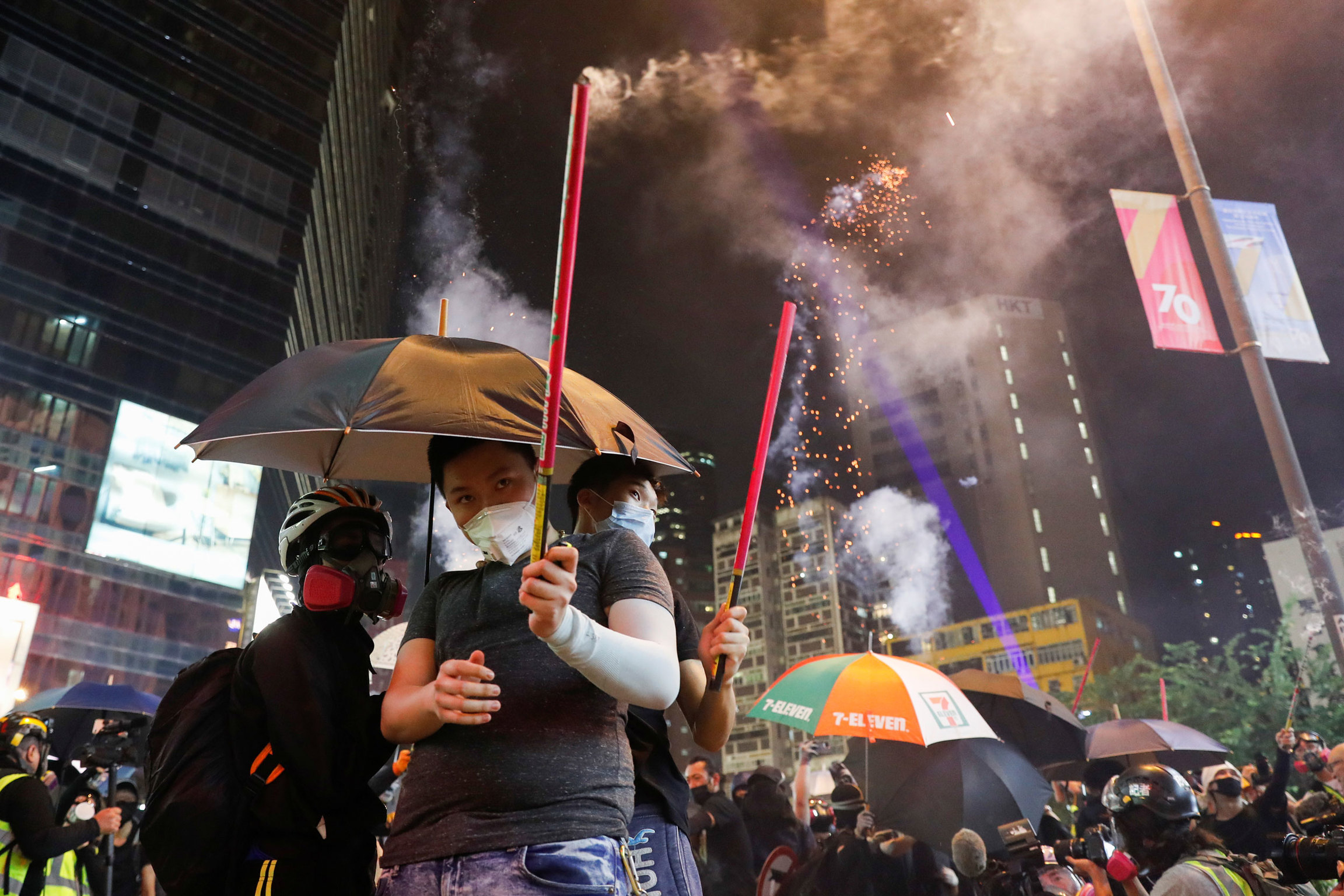The Hong Kong Protests: Past, Present, & Future
The Hong Kong protests all started after a murder. On Feb. 8th, 2018, a couple by the names of Chan Tong-Kai, and his pregnant girlfriend, Poon Hiu-Wing, took a trip from their home in Hong Kong to Taiwan. This vacation took a deadly turn when Tong-Kai murdered his pregnant girlfriend and returned home by himself 9 days later. Tong-Kai then confessed to her murder a month after returning to Hong Kong.
A problem had arisen when officials tried to prosecute him. Due to the crime taking place in Taiwan, Hong Kong could not charge Tong-Kai with the murder. Hong Kong could not send him back to Taiwan to be persecuted either due to the lack of an extradition agreement. So, in 2019, Hong Kong proposed one. This extradition agreement allowed Hong Kong to transfer subjects to Taiwan, so they could be tried for their crimes. However, this bill also allowed the extradition of criminals to mainland China. This is what sparked the protests in Hong Kong.
The bill threatened to give China more power over Hong Kong which makes the citizens who live there very angry. Hong Kong is technically part of China; however, their government operates as a semi-autonomous region.
It began in the late 1800’s when Great Britain won a series of wars against China. Britain took Hong Kong for a period of 99 years. Hong Kong remained a colony of the British until the year 1997 when it returned to Hong Kong to China under an agreement. The agreement was called “One Country – Two Systems”. This agreement made Hong Kong a part of China, however, it also gave the citizens of Hong Kong a wide range of democratic freedoms. For example, in Article 12, it says that Hong Kong would receive a high degree of autonomy. The agreement also said in Article 26, the citizens of Hong Kong have the right to vote, and in Article 27, they receive the right to free speech, the right to assemble, and the right to strike.
These types of governmental rights drastically differ from that of mainland China, which is under extreme oppression. China has an authoritarian government, and its legal system is often used to punish, arrest, and silence people who speak out against their government. Hong Kong has a legislative system with democratically elected representatives called a Legislative Council, or LegCo. This system, however, proves to be unfair, as democracy wins the popular vote but makes up less than half of the seats on the council. This is an example of the type of system that Hong Kong has which differs from China.
Within the agreement, it is written that Hong Kong is supposed to legally become a part of China in 2047. The problem is that China does not want to wait. Hong Kong has been pushing back against Mainland China. For example, in 2003, half a million Hong Kong citizens protested legislation that would punish them for speaking out against China. This type of anger within Hong Kong citizens will only grow as the period for Hong Kong’s inevitable return to China grows closer and closer. Hong Kong protests the bill have suspended it; however, many want the bill completely withdrawn. Hong Kong will eventually be returned and unified with Mainland China, despite the disapproval from its citizens.
This action could possibly lead to a civil war. With the unpredictability of the protests and Hong Kong’s citizens, it is impossible to know how this will end.

Credit:
Tyrone Siu/Reuters



